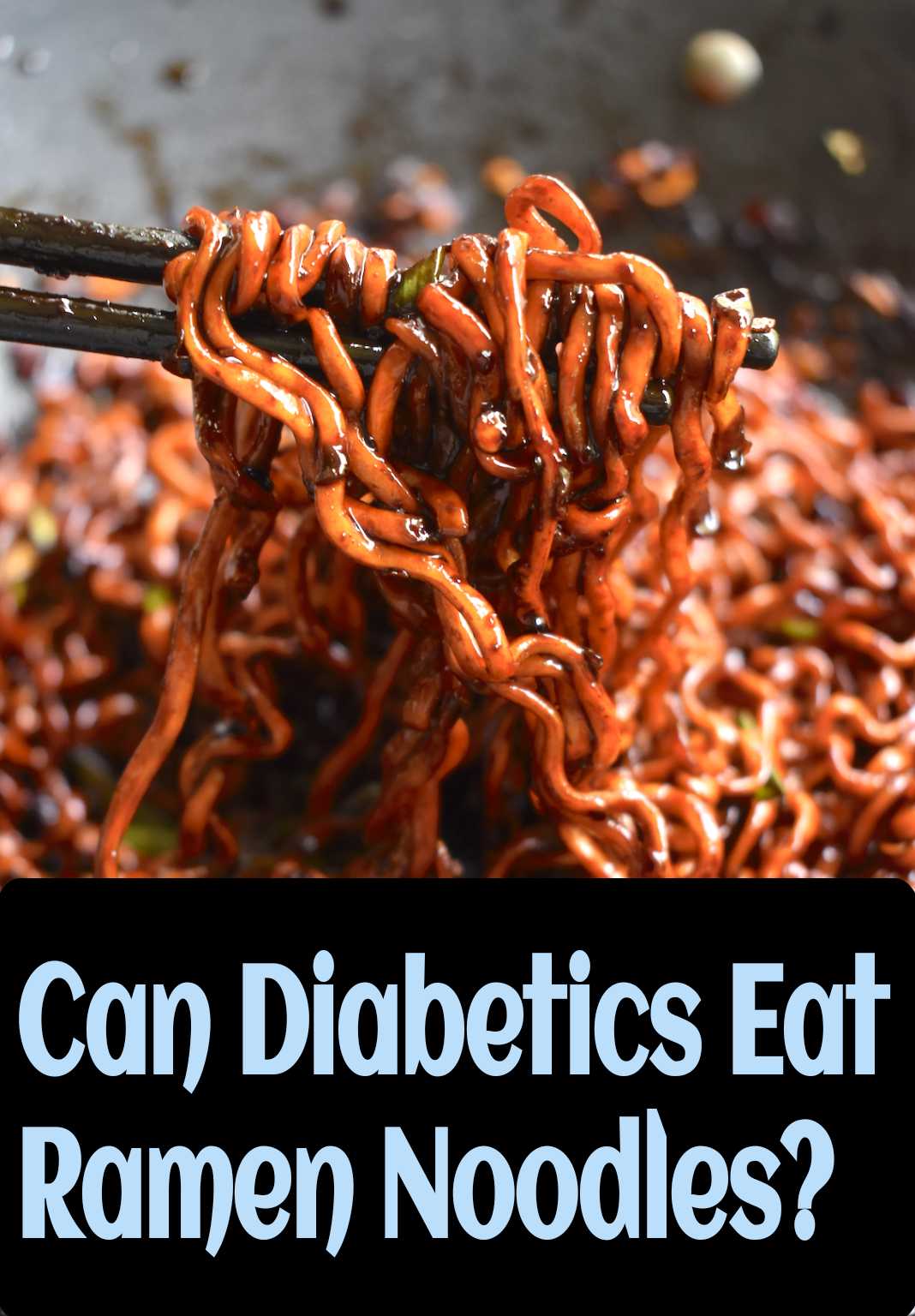Table of Contents
Can Diabetics Eat Ramen Noodles?
There’s something undeniably satisfying about picking up noodles with chopsticks or a fork, whether it’s a steaming bowl of ramen, a hearty chow mein, or a delicious stir-fry. Noodles are incredibly versatile and can be crafted into endless dishes limited only by your imagination.
However, for diabetics, it’s crucial to understand how different types of noodles, including ramen, affect blood sugar levels. Choosing the right noodles and consuming them in the right way is key to managing diabetes effectively. That’s why it’s always recommended to consult a dietitian to create a tailored plan that balances carbohydrates, protein, and other nutrients.
In this article, we’ll explore everything you need to know about ramen noodles and diabetes.
Get your favorite Diabetics Cookbook here.
Disclaimer
This article is for educational purposes only and should not replace professional medical advice. Please consult your healthcare provider before making dietary changes.
What Are Ramen Noodles?
Ramen noodles are a staple in Japanese cuisine, typically served in a rich broth made from chicken, pork, or vegetables, along with various seasonings. These noodles are made from wheat flour, water, salt, and kansui (alkaline water), which gives them their springy texture, distinct flavor, and characteristic yellow hue.
Ramen noodles come in various shapes and thicknesses. Chefs often match the thickness of the noodles to the heaviness of the broth, and many restaurants allow customers to customize their noodle and broth preferences.
Are Ramen Noodles Healthy?
Ramen noodles are not inherently healthy or unhealthy. They are primarily made up of carbohydrates, with smaller amounts of protein, fat, and micronutrients like iron and B vitamins. However, they do have significant downsides:
- High Sodium Content: Many ramen noodles contain over 90% of the daily recommended sodium intake, which can contribute to high blood pressure if consumed regularly.
- Refined Carbohydrates: These noodles digest quickly, causing spikes in blood sugar levels, and provide little fiber or nutritional value.
- Potential Health Risks: Overindulgence in ramen can lead to high blood sugar, abdominal fat, and an increased risk of metabolic syndrome.
That said, ramen noodles can still be enjoyed in moderation as part of a balanced diet when paired with nutrient-rich ingredients.
Can Diabetics Eat Ramen Noodles?
Yes, diabetics can eat ramen noodles, but moderation and preparation are key. The primary concern lies in the portion size and the high glycemic index (GI) of traditional ramen noodles, which can cause rapid spikes in blood sugar levels.
To make ramen noodles safer for diabetics:
- Pair Them Wisely: Add plenty of vegetables and lean protein to your bowl. These help slow down the absorption of carbohydrates and stabilize blood sugar levels.
- Control Portion Size: A smaller serving of noodles, balanced with high-fiber and protein-rich toppings, can make a big difference.
- Choose Low-Carb Alternatives: Switching to low-carb or whole-grain ramen noodles can be a more diabetes-friendly option.
Best Ramen Noodles for Diabetics
Here are some low-carb and diabetes-friendly ramen noodle options that still satisfy your cravings:
1. Low Carb Noodles Keto Ramen
- Carbs: 3 grams
- Protein: 15 grams
This keto-friendly option has a firm, al dente bite and significantly fewer carbs than traditional ramen. Keep in mind, it lacks the salty punch of regular ramen, so you may need to enhance the flavor with spices or herbs.
2. Noodle Revolution – Keto Noodles
- Carbs: 1 gram
- Protein: 10 grams
Made primarily from egg whites, these noodles are a low-carb, high-protein alternative. While they may cross the line from al dente to overcooked quickly, they are versatile and take on the flavor of the dish they’re added to.
3. Hethstia Shirataki Noodles
- Carbs: 0 grams
Gluten-free, non-GMO, and keto-friendly, these shirataki noodles are an excellent option for diabetics. They come pre-flavored with a tom yum sauce and have no odor, making them convenient and tasty.
Tips for Enjoying Ramen as a Diabetic
- Prioritize Complex Carbs: The American Diabetes Association (ADA) recommends choosing whole grains and complex carbohydrates over refined ones.
- Monitor Blood Sugar: If you’re trying ramen for the first time or experimenting with new alternatives, monitor your blood sugar levels to understand how your body reacts.
- Experiment with Recipes: Incorporate low-sodium broths, fresh vegetables, and lean proteins to enhance the nutritional profile of your ramen dish.
Summing It Up: Are Ramen Noodles Good for Diabetics?
Traditional ramen noodles can contain 22–27 grams of carbohydrates per serving, which may not be ideal for diabetics. However, when consumed in moderation and paired with nutrient-rich ingredients like vegetables and proteins, they can be part of a balanced meal.
For a long-term solution, consider low-carb or whole-grain noodle options. While these alternatives may lack the rich flavor and texture of traditional ramen, they are far better suited for managing blood sugar levels and supporting overall health.
Have you tried other diabetes-friendly ramen noodles? Share your favorites with us, and we’ll add them to our list!
By understanding your options and making smart choices, you can continue to enjoy the comforting experience of ramen noodles without compromising your health.

